WASHINGTON ― Senators critical of President Donald Trump’s sudden military withdrawal from Syria are prepping a legislative response to the Turkish offensive there, but some colleagues worry America’s Kurdish partners may be dead by the time sanctions are imposed.
Sens. Lindsey Graham, R-S.C., and Chris Van Hollen, D-Md., have proposed Congress’ most concrete legislative response to date to the unfolding crisis. Their bill includes sanctions on Turkish President Recep Tayyip Erdogan and a tougher stance against Ankara’s purchase of the Russian S-400 air defense system.
Graham, a Trump ally who has publicly broken with the administration over the president’s decision to yank U.S. troops from northern Syria, implored Trump on Thursday to sanction Turkey, reestablish safe zones to protect America’s Kurdish allies and “prevent the reemergence of ISIS before it’s too late,” using an acronym for the Islamic State group.
“Mr. President, your decision regarding Syria is having grave consequences to our national security and that of our allies and partners,” Graham said in a series of tweets. “Please change course while you still can.”
The sanctions, as proposed, would remain in place until the executive branch certifies to Congress that Turkey is not engaged in military activities in contested areas of Syria and that all Turkish and Turkish-partner fighters have been withdrawn from Syrian territories impacted by the Turkish military operation that began Wednesday.
RELATED

Trump is facing criticism from members of both parties who say his decision to withdraw U.S. troops would bolster ISIS and harm America’s credibility as an ally. The action took place during Congress’ two-week recess, and it’s unclear what response lawmakers will muster when they return next week.
Some Democrats said Thursday that sanctions would not be enough to quell the Syrian conflict in time.
“By the time sanctions are imposed on Turkey many of our key allies in the fight against ISIS will have been killed,” Sen. Brian Schatz, a senior Democrat on the Senate Appropriations Committee, said in a tweet. “Republicans in the Senate have to do more than disagree. They must use all their power as Senators to push back. Everything else is for show and for cover.”
Sen. Chris Murphy, D-Conn., who sits on the Foreign Relations Committee, said in a series of tweets Thursday that only the president, and not Congress, could repair the crisis, and he called on Republicans to pressure Trump.
“Trump, not sanctions, can save the Kurds. So shouldn’t GOP be using the MASSIVE leverage they have over him right now to get him to change course, instead of passing sanctions he’ll ignore anyway?” he said. “Splitting NATO is a huge win for Russia.”
RELATED
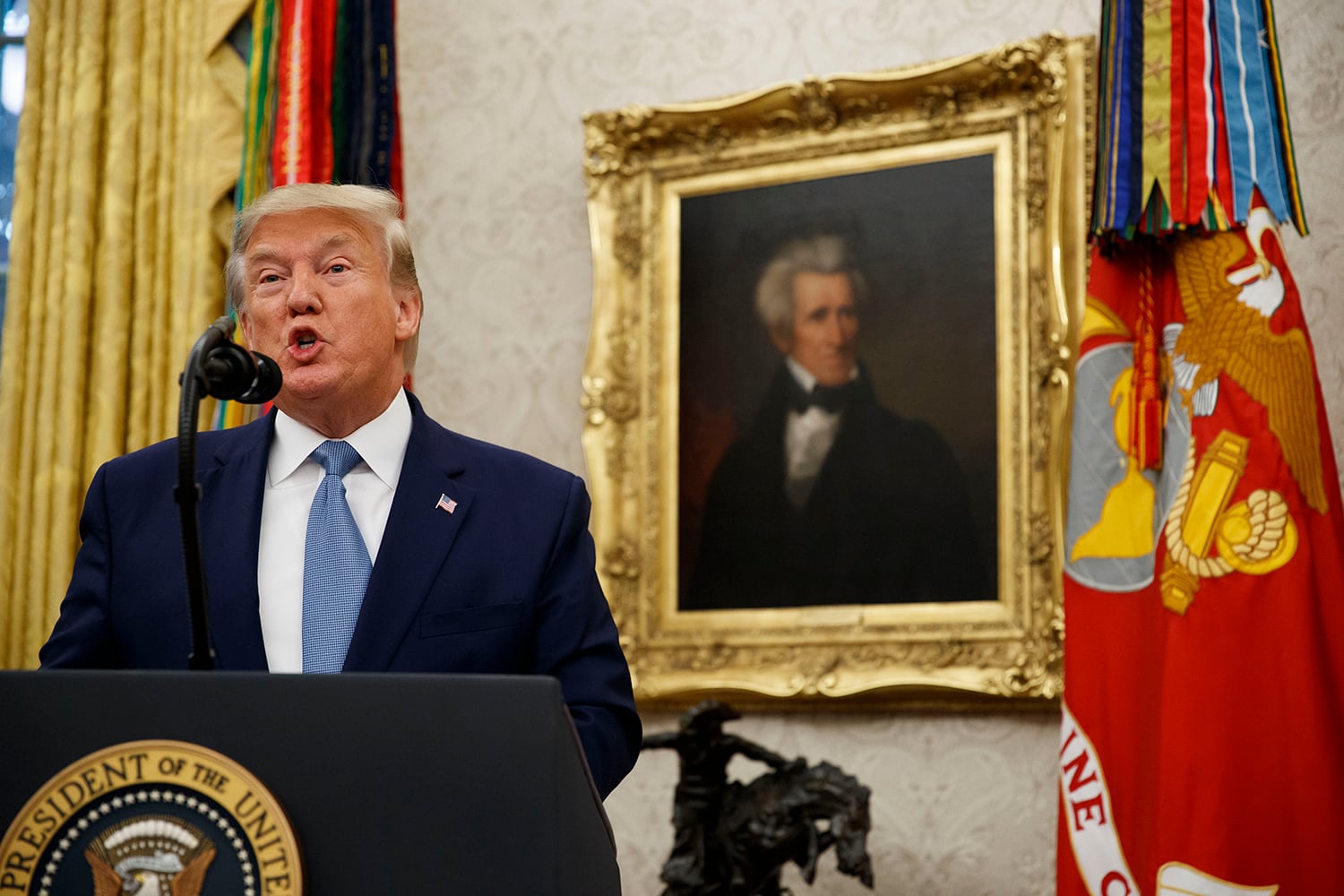
The backlash follows the White House’s abrupt announcement Sunday that Turkey would move ahead with a “long-planned” offensive in northeastern Syria and that the small number of U.S. troops that had been in the area would be absent when it happens.
The next day, Erdogan confirmed that Turkish action against Kurdish fighters was imminent, which prompted Trump to threaten via Twitter that he would “totally destroy and obliterate” Turkey’s economy if Ankara took any action he considered “off-limits.”
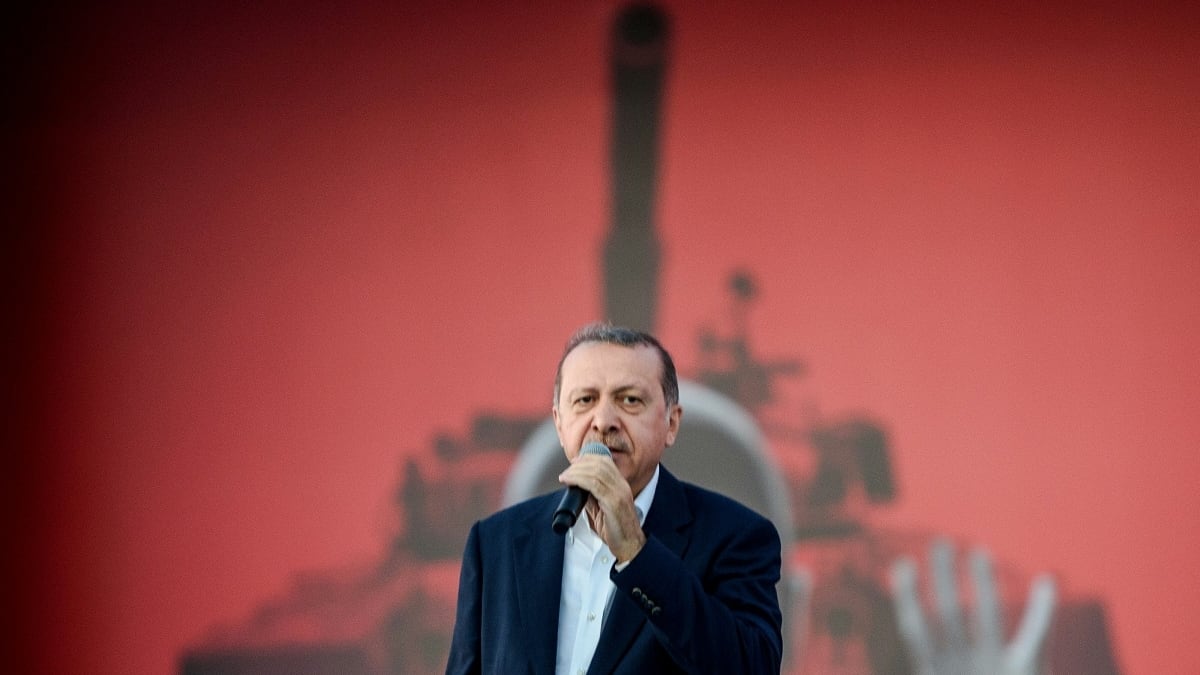
Trump has also since downplayed the alliance with the Kurds, 11,000 of whom died fighting to help the U.S. mission against ISIS. “They didn’t help us in the Second World War, they didn’t help us with Normandy for example,” Trump said.
How Congress acts next is a test for two gatekeepers, Senate Majority Leader Mitch McConnell, R-Ky., and Senate Senate Foreign Relations Committee Chairman Jim Risch, R-Idaho, who have in the past blocked bills they believed the president would not sign.
This week, McConnell resisted directly criticizing Trump, but he did make a public statement urging the president “to exercise American leadership” to prevent conflict between America’s Syrian allies and its NATO ally, Turkey. Supermajorities in both chambers voted in January to support a U.S. presence in Syria, McConnell noted, in what may have been a thinly veiled warning.
“The conditions that produced that bipartisan vote still exist today,” McConnell said. “A precipitous withdrawal of U.S. forces from Syria would only benefit Russia, Iran and the [regime of Syrian President Bashar Assad]. And it would increase the risk that ISIS and other terrorist groups regroup."
Senate Armed Services Committee Chairman Jim Inhofe, R-Okla., has not directly criticized Trump, but did say Monday he had been in contact with Defense Secretary Mark Esper and would continue discussions.
“I agree that we cannot engage in unending conflict, but steps must be taken to prevent a security vacuum in northeastern Syria that would benefit terrorists, Putin and Iran, and harm our national security interests," Inhofe said. “We also need to continue to work with our NATO ally, Turkey, as well as our partners, the Kurdish-led Syrian Democratic Forces.”
RELATED
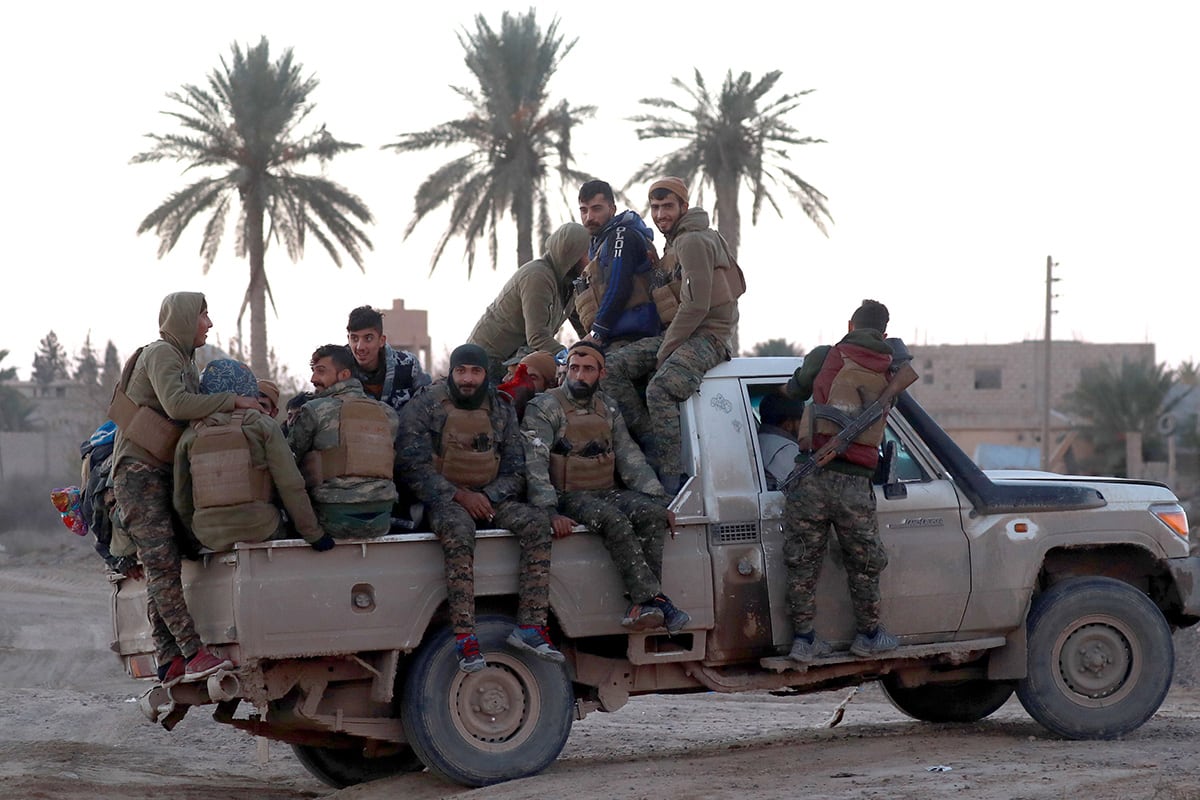
Among Senate Foreign Relations Committee Republicans, Sens. Ted Cruz, Cory Gardner, Ron Johnson, Johnny Isakson, Mitt Romney, Marco Rubio and Todd Young have all questioned Trump’s decision to varying degrees.
In a tweet, Rubio noted that “at request of this administration, the Kurds served as the primary ground fighters against ISIS in Syria so U.S. troops wouldn’t have to.” According to Rubio, the administration “cut deal with Erdogan allowing him to wipe them out. Damage to our reputation & national interest will be extraordinary & long lasting.”
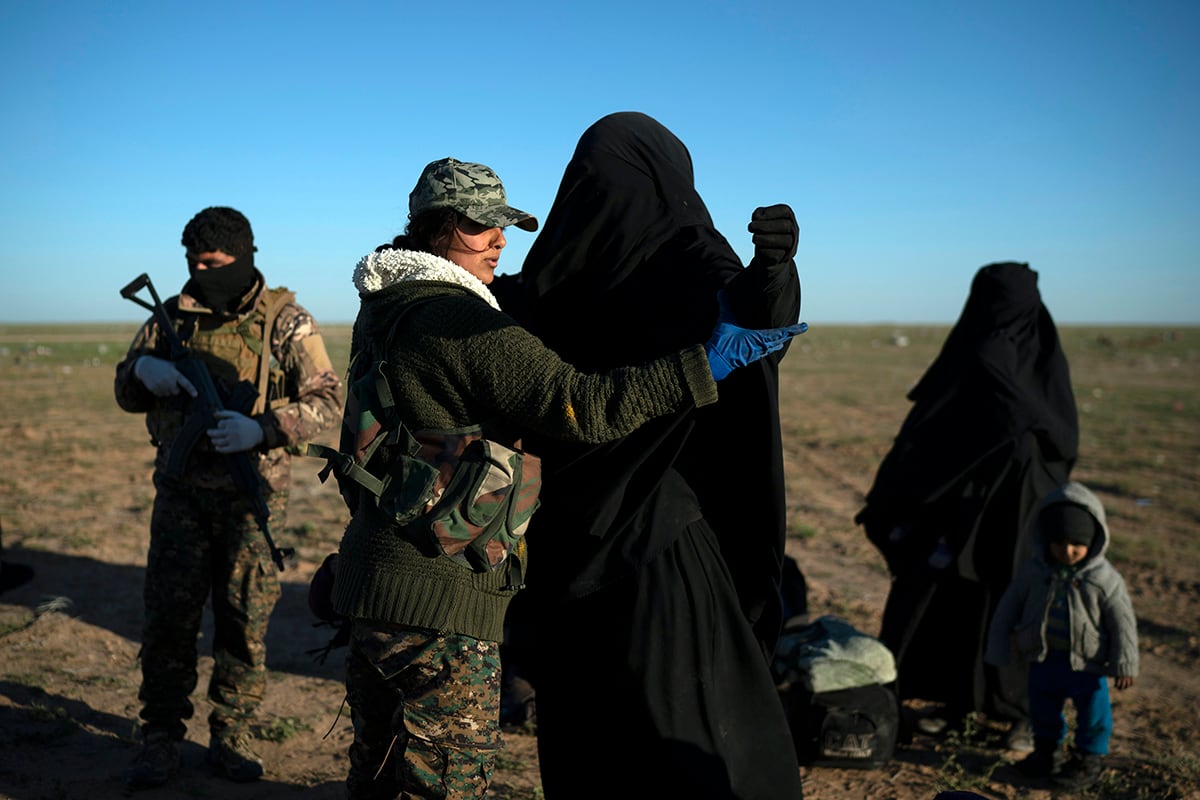
On the other hand, Sen. Rand Paul, R-Ky., has been active on television and social media to defend Trump against what he called the “neocon war caucus.” Risch’s public statement Wednesday was focused on Turkey, not Trump.
In a joint statement, Murphy and Romney — who is the chairman of the Senate Subcommittee on Near East, South Asia, Central Asia, and Counterterrorism — called on the Trump administration to come before the Senate Foreign Relations Committee “to explain to the American people how betraying an ally and ceding influence to terrorists and adversaries is not disastrous for our national security interests.”
While it’s unclear what action the Democrat-led House will take, 57 House Democrats wrote to Trump on Thursday to warn that his decision to withdraw U.S. troops from northeastern Syria in advance of a known Turkish military operation puts U.S. allies in danger and harms ongoing counter-ISIS efforts.
Days earlier, the lead Republican on the House Foreign Affairs Committee, Rep. Michael McCaul, said much the same. “I strongly urge the President to reconsider this decision” McCaul said in a statement, urging a solution “that does not entail unilateral Turkish military action.”
Wyoming Rep. Liz Cheney, the No. 3 House Republican, said in a statement Wednesday that “President Trump’s decision to withdraw U.S. forces from northern Syria is having sickening and predictable consequences.”
“The U.S. is abandoning our ally the Kurds, who fought ISIS on the ground and helped protect the U.S. homeland. This decision aids America’s adversaries, Russia, Iran, and Turkey, and paves the way for a resurgence of ISIS,” she said.
RELATED
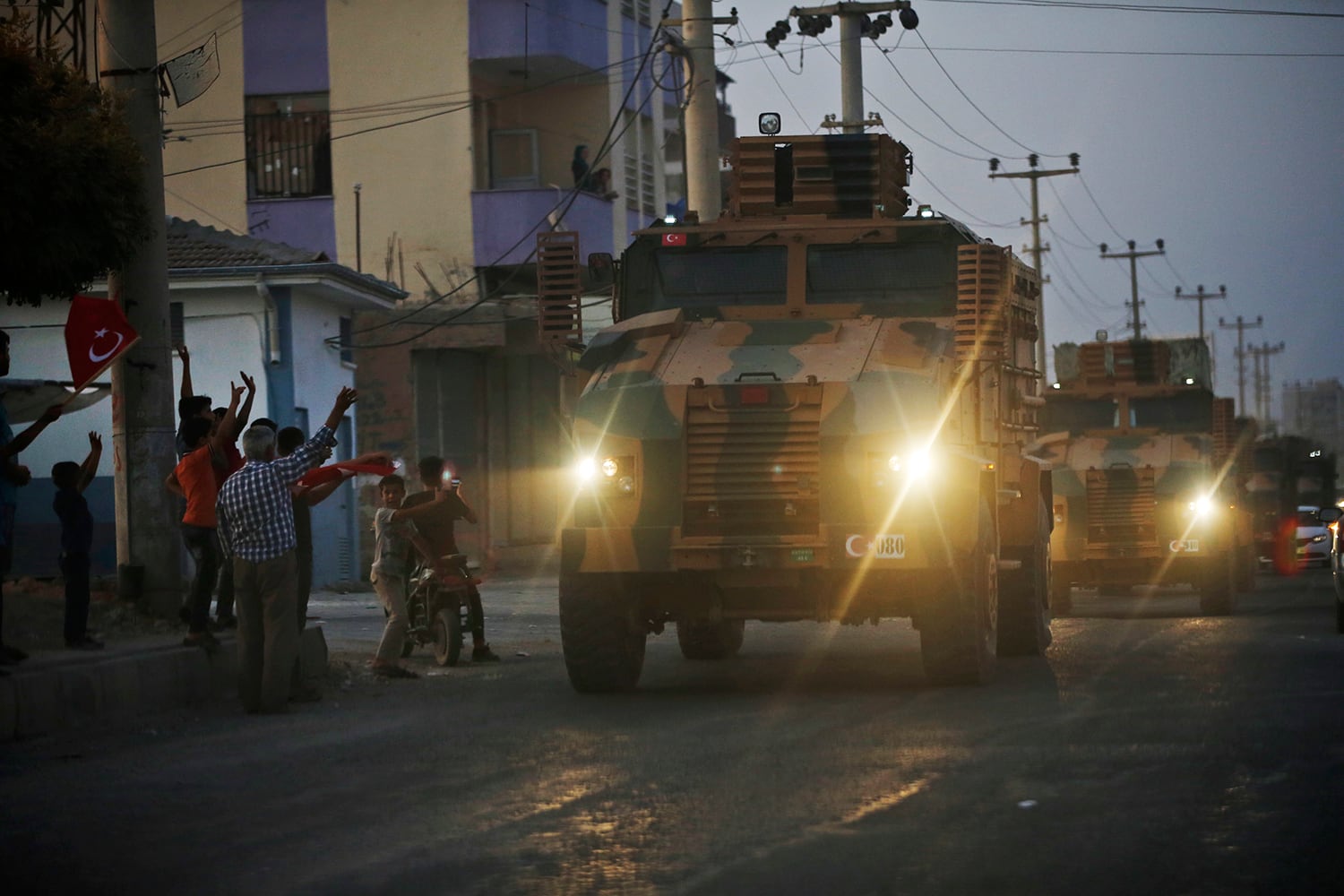
Trump’s move has been hailed by some in the GOP’s non-interventionist wing, like Paul, who have noted Congress never authorized military action in Syria in the first place.
On Thursday, Paul said the withdrawal of America’s token force removed U.S. troops from harm and encourages Kurdish forces to make peace with Turkey. “What we need is a multilateral group to hammer out a peace ... I think that maybe we have been impeding peace talks,” Paul told CBS News.
At the Defense Priorities Foundation, which is focused on restraint and realist foreign policy, senior fellow Daniel Davis, a retired Army officer, opposed the idea of Turkey sanctions ― which “would undermine American interests and add unnecessary complications to our already-tense relationship with our NATO ally” ― and opposed the presence of U.S. troops anywhere in the Middle East.
“If many in Washington had their way and Turkey withdrew its forces because of U.S. pressure, the net result would be the worst outcome for U.S. interests: American military troops staying in Syria with neither a mandate nor militarily attainable objectives,” Davis said.
Had U.S. troops stayed, he said, “The best we could hope for is to be caught in the cross-fire between Turkey and the SDF or owing to miscalculation or accident, come under fire from Russian, Syrian, Iranian troops or fighters from other radical Islamic groups.”
Joe Gould was the senior Pentagon reporter for Defense News, covering the intersection of national security policy, politics and the defense industry. He had previously served as Congress reporter.
